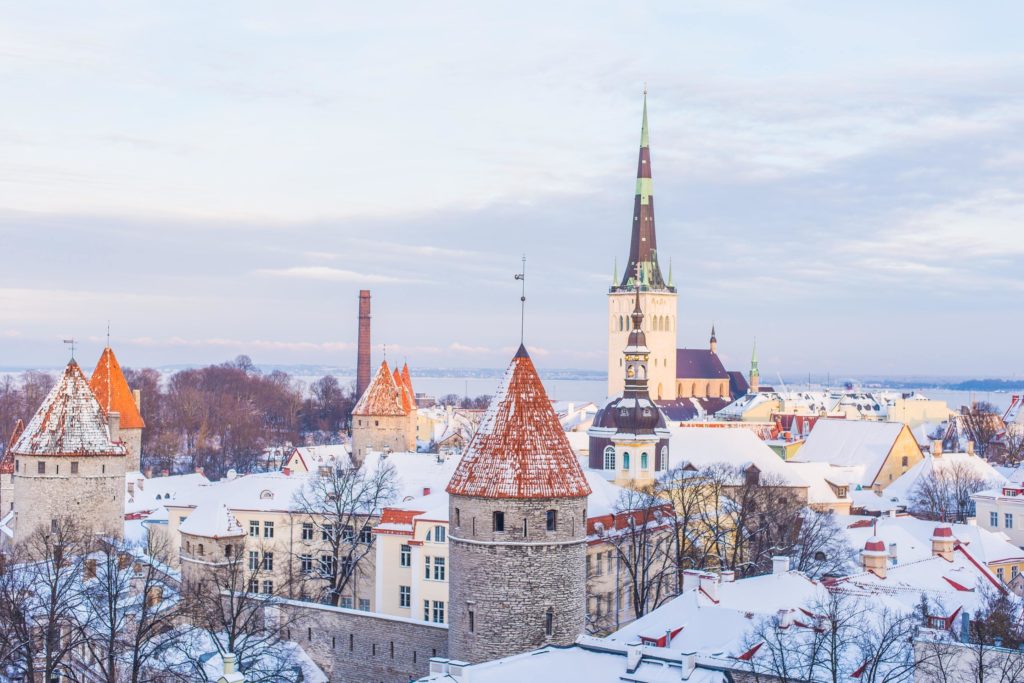The Republic of Estonia, through its tremulous history of occupation and resistance, stands today as an economically strong and high-income nation. Located in Northern Europe, Estonia is spread over an area of 45,339 km2 with a population of mere 1.5 million people. Estonia is the least populated member of the EU, Eurozone, OECD, Schengen, and NATO.
Due to the transparent government policies and their perpetual nature, the Estonian Economy continues to benefit putting it in the 6th position on the economic freedom index globally. Food, agriculture, electronics, and construction industries propel the economic boost while the country remains dependent on other countries for energy.
Lebanese citizens who wish to relocate or permanently move to Estonia are required to follow the naturalization process. Starting from obtaining a temporary residence card to permanent residency and ultimately gaining citizenship through naturalization. The entire process may take up to 10 years.

Temporary residence permit
According to the Aliens Act of Estonia, a foreigner may apply for a temporary residence permit if they plan to stay with their Estonian spouse, reunite with family, study, work, or do business. Other than that, the Estonian government encourages investment residency programs alongside as well.
The conditions to qualify for temporary residence in Estonia for Lebanese citizens are listed below:
- Medical insurance for the entire duration of stay in Estonia
- Income must be two times the level of average subsistence
- Average subsistence level as of 2019 = €150 for first family member, €120 for each additional member
- Applicant falls within the annual immigration quota (0.1% of the permanent Estonian population)
The residence permit is granted to investors who are willing to invest €65,000 or above in an Estonian company or a s sole proprietor of their own company. In the case of self-employed the required investment is reduced to €16,000.
Validity & Requirements for permanent residence
The validity of the temporary residence permit is usually 60 months (5 years). After 5 years of living in Estonia, a Lebanese citizen may apply for permanent residence provided he/she satisfies below conditions:
- Applicant’s accommodation is entered in the Estonian Population Registry
- Health insurance coverage
- Permanent income of €260 or more per month
- B1 level of Estonian language
Once the applicant obtains permanent residence and stays in Estonia for another 5 years on the same permit, he/she becomes eligible to apply for citizenship through naturalization. Note that Estonia does not recognize dual nationality, hence, the previous nationality must be renounced before taking up the new one.
Citizenship through naturalization
After spending 8 years in Estonia, of which 5 must be on a permanent residence permit, a Lebanese citizen can apply for Estonian citizenship status. The most basic conditions to satisfy for application are listed below:
- Passing the language proficiency test
- Passing the exam on constitution and citizenship law
- Stable permanent income of €260/month or more
- Oath of loyalty to Estonia
The D-Visa
For some people, permanently relocating to a new country may not be the best choice, or they may be on the fence. Before committing to the years-long process of permanent relocation, it is wiser to test the waters by living in Estonia for a little longer than permitted on a Schengen tourist visa to obtain Visa D.
The application may take up to 30 days to process. Once the applicant has a D-Visa he/she can stay and work in Estonia for 12 months. The documents required to apply are listed below:
- Valid passport (issued within last 10 years, has 2 blank pages, has 3 months validity after the visa expires)
- Duly filled application form
- 2 photographs (taken as per Schengen visa regulations)
- Insurance coverage of up to €30,000 for 15 days of employment
- Statement do declare the purpose of your stay
- Receipt of visa fee payment (€100)
- Accommodation proof
- Income and financial documents to prove the applicant can maintain decent subsistence
- Employment contract
- Itinerary and airline tickets



